This May, our team took part in one of Europe’s leading innovation gatherings, Dublin Tech Summit 2025. Represented by our CEO, Oleksandr Semeniuk, Head of Data & AI, Maksym Voitko, and VP of Partnerships, Tetiana Krechyk, we scouted emerging AI trends, joined global tech leaders, exchanged ideas, and immersed ourselves in fascinating conversations.
If you’re navigating digital transformation, experimenting with artificial intelligence, or wondering how to make your teams more efficient without expanding headcount, this recap shares valuable insights from the heart of Europe’s tech scene.
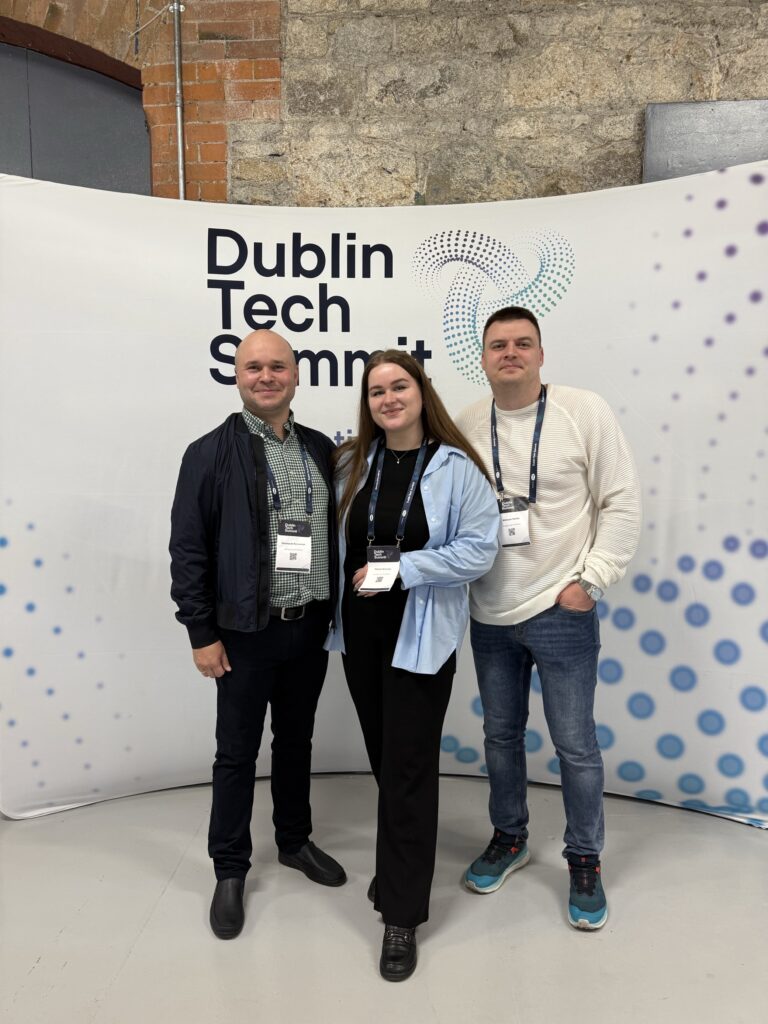
How early-stage startups are using AI to move fast
From panel discussions to spontaneous hallway chats, Dublin Tech Summit proved to be a powerful platform for meaningful exchange. Our team connected with professionals across industries, gaining insights into how AI, engineering, and innovation are transforming the way organizations think and operate.
Startups pitching at the Dublin Tech Summit Pitch Competition stood out for their energy and vision. We were especially intrigued by how early-stage teams are leveraging AI to tackle real-world challenges — from marketing and logistics to law and full-fledged product development.
Many founders emphasized the role of lean, focused teams and how access to advanced artificial intelligence tools is helping them operate more efficiently and adapt quickly to changing demands.
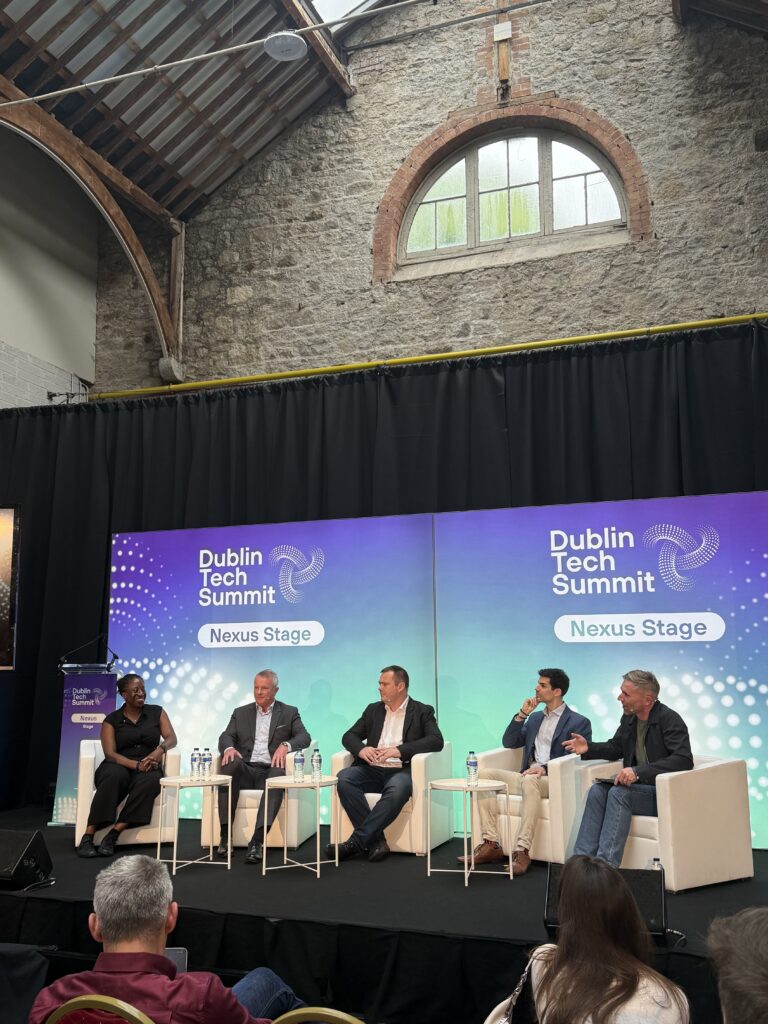
Why artificial intelligence is a mindset shift
AI wasn’t just a theme at this year’s summit, it was at the core of nearly every conversation. Industry leaders emphasized that artificial intelligence is no longer confined to R&D teams. It’s becoming embedded across all business functions.
During the panel “Innovation in Action: The CIO Power Shift,” speakers underscored a critical point: innovation can’t live in a silo, it has to be part of the company’s culture. Success with AI isn’t just about adopting the right tools, it’s about embedding adaptability, experimentation, and cross-functional thinking into the way teams work every day.
Adding to that, Sarah Friar, CFO at OpenAI, shared one of the summit’s most memorable insights: small teams become more and more effective with AI. She encouraged leaders to pause before hiring and ask whether a task could instead be handled by an AI agent.
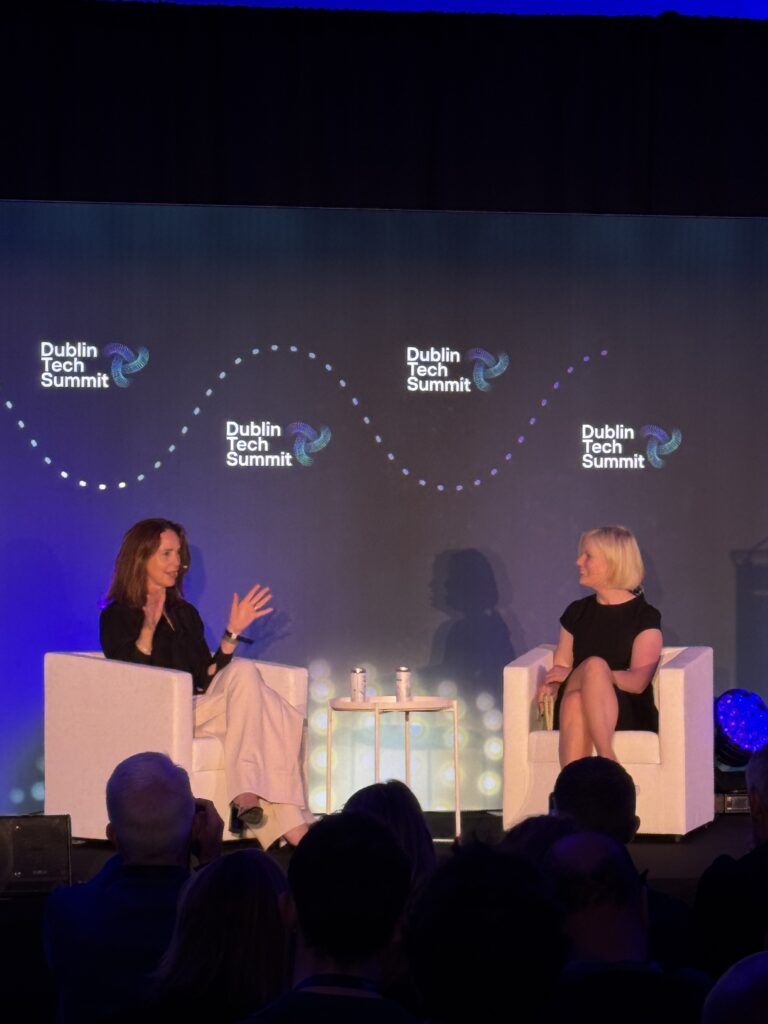
That’s the kind of question we help our clients answer at Honeycomb Software. By identifying high-impact use cases and building custom agents, we help teams boost efficiency without increasing headcount.
But AI doesn’t just improve how teams work, it’s changing what they work on. LLMs and AI agents are empowering engineers to shift their focus from repetitive tasks to strategic, visionary challenges. With routine execution offloaded to intelligent systems, teams have more freedom to think creatively and solve complex problems.
How AI and unified data are transforming martech
During a conversation with Supermetrics, we explored the growing role of AI in marketing technology: Artificial intelligence paired with unified data can unlock better insights, faster decisions, and more meaningful impact across platforms.
At Honeycomb Software, we’ve seen this firsthand. Many teams struggle with fragmented data. AI can bridge that gap, turning scattered information into actionable strategies.
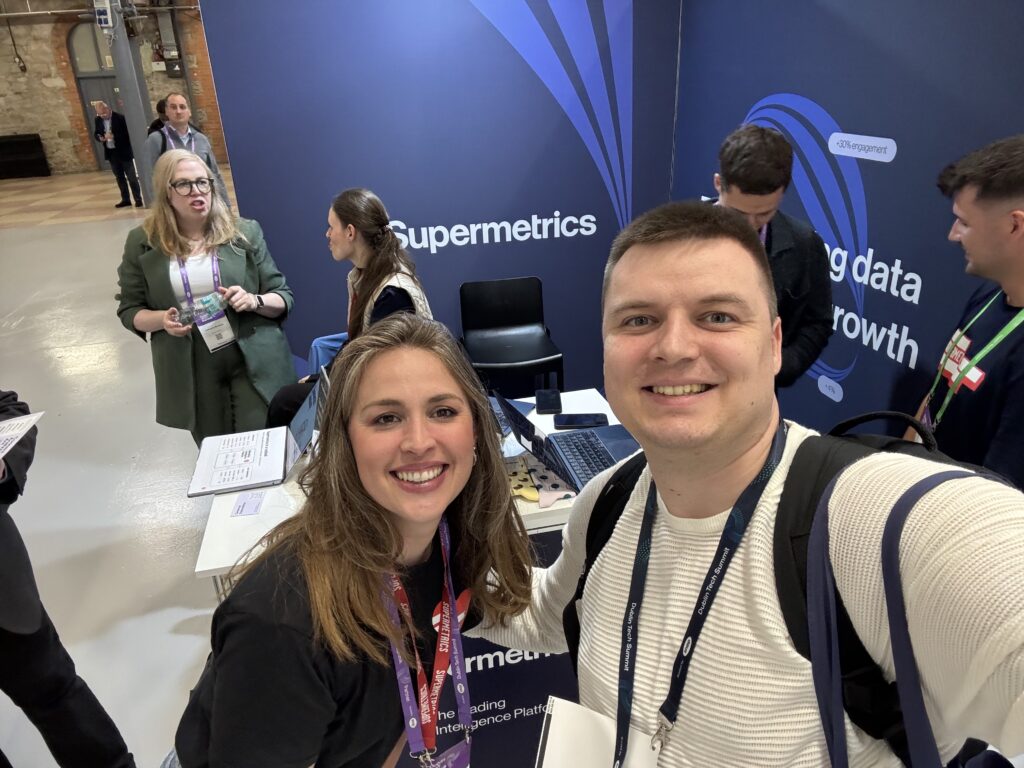
Why enterprise AI needs better communication
As artificial intelligence systems become more integrated into complex products, a new challenge arises: how do different AI agents communicate effectively within those ecosystems?
This was the focus of a conversation Maksym Voitko had at Google’s Dublin office, where he explored the topic of agent-to-agent communication in legal tech. It underscored the importance of making AI not only intelligent but also interoperable.
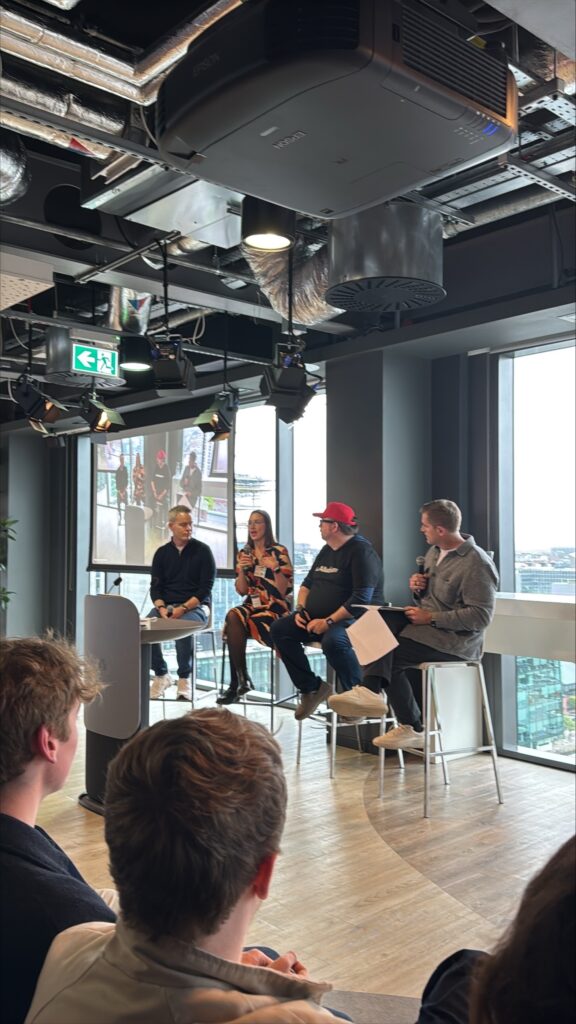
In sectors like law, where workflows are multilayered and highly regulated, effective AI collaboration can dramatically streamline operations, reduce friction, and unlock scalability. For teams working on AI-enabled platforms, this shift from isolated models to coordinated systems is becoming a critical priority.
To make this work, organizations need both the right infrastructure and the right talent. The foundation of any startup — even an AI startup — is a strong technical team. With access to LLMs and the expertise to integrate them effectively, these teams are finding product–market fit faster and building more resilient, scalable solutions from the ground up.
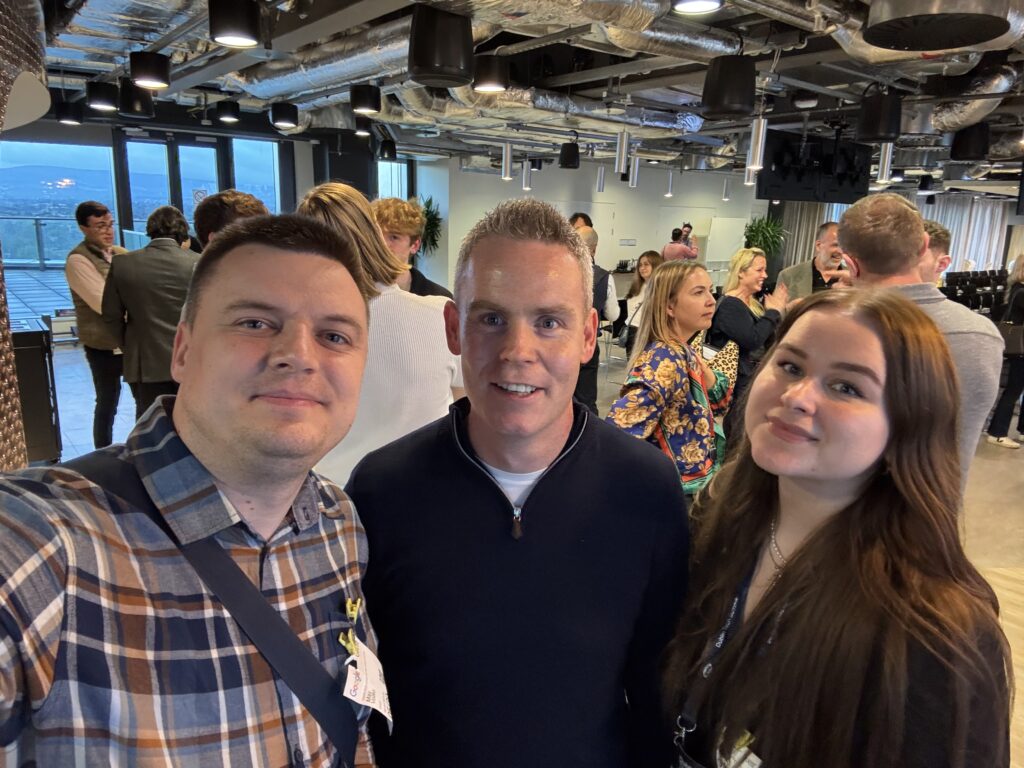
Open source as a long-term business strategy
We also reflected on a shift in how companies think about open source. It’s no longer just a way for developers to give back — it’s a strategic tool for building trust, accelerating adoption, and strengthening the ecosystem around your product.
For platform providers and tech teams alike, contributing to open source isn’t just a generous gesture — it’s smart business.
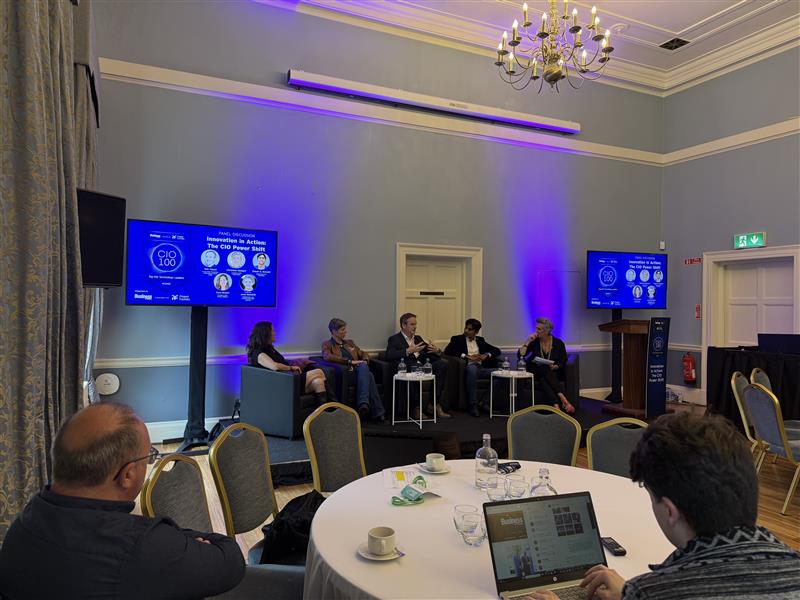
Capturing the energy on the ground
From pitch competitions to off-stage conversations, Dublin Tech Summit was full of energy and insight. Our team documented the atmosphere, from the main stage to casual meetups at the food court, and left with a renewed sense of possibility.
Dublin Tech Summit 2025 reminded us that progress doesn’t happen in isolation. It’s driven by shared learning, bold questions, and teams that see the future as something to shape, not wait for.
At Honeycomb Software, we’re applying AI as a practical tool to improve how digital products are built. Our AI-powered software engineering services help teams move swiftly, validate ideas earlier, reduce delivery friction, from faster MVP launches to modernizing legacy systems, all without compromising on quality or long-term scalability.
If you care about staying ahead in a world shaped by AI, evolving tech cultures, and open collaboration, and want to explore how we apply AI to solve complex challenges? Reach out at hello@honeycombsoft.com